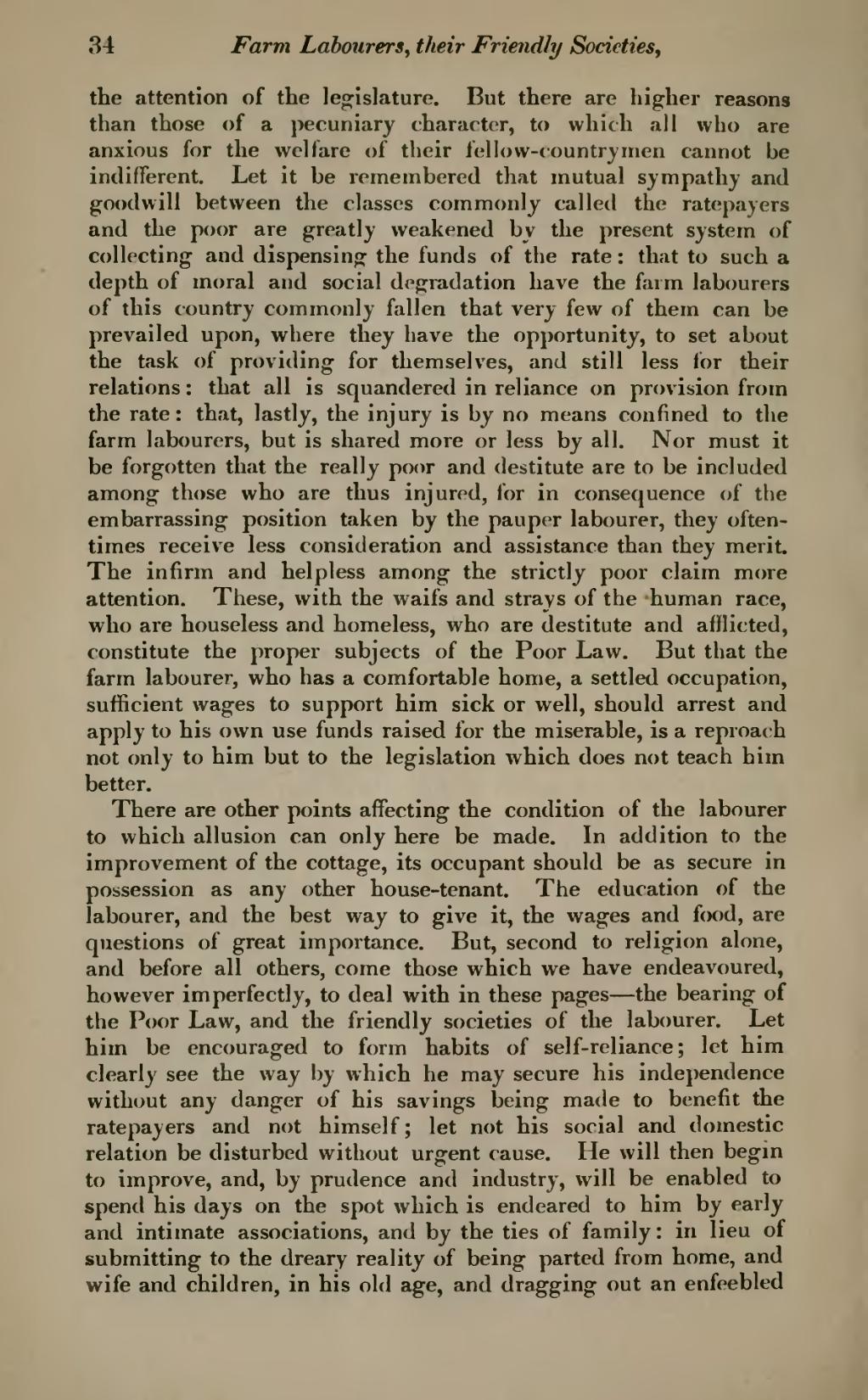the attention of the legislature. But there are higher reasons than those of a pecuniary character, to which all who are anxious for the welfare of their fellow-countrymen cannot be indifferent. Let it be remembered that mutual sympathy and goodwill between the classes commonly called the ratepayers and the poor are greatly weakened by the present system of collecting and dispensing the funds of the rate: that to such a depth of moral and social degradation have the farm labourers of this country commonly fallen that very few of them can be prevailed upon, where they have the opportunity, to set about the task of providing for themselves, and still less for their relations: that all is squandered in reliance on provision from the rate: that, lastly, the injury is by no means confined to the farm labourers, but is shared more or less by all. Nor must it be forgotten that the really poor and destitute are to be included among those who are thus injured, for in consequence of the embarrassing position taken by the pauper labourer, they oftentimes receive less consideration and assistance than they merit. The infirm and helpless among the strictly poor claim more attention. These, with the waifs and strays of the human race, who are houseless and homeless, who are destitute and afflicted, constitute the proper subjects of the Poor Law. But that the farm labourer, who has a comfortable home, a settled occupation, sufficient wages to support him sick or well, should arrest and apply to his own use funds raised for the miserable, is a reproach not only to him but to the legislation which does not teach him better.
There are other points affecting the condition of the labourer to which allusion can only here be made. In addition to the improvement of the cottage, its occupant should be as secure in possession as any other house-tenant. The education of the labourer, and the best way to give it, the wages and food, are questions of great importance. But, second to religion alone, and before all others, come those which we have endeavoured, however imperfectly, to deal with in these pages—the bearing of the Poor Law, and the friendly societies of the labourer. Let him be encouraged to form habits of self-reliance; let him clearly see the way by which he may secure his independence without any danger of his savings being made to benefit the ratepayers and not himself; let not his social and domestic relation be disturbed without urgent cause. He will then begin to improve, and, by prudence and industry, will be enabled to spend his days on the spot which is endeared to him by early and intimate associations, and by the ties of family: in lieu of submitting to the dreary reality of being parted from home, and wife and children, in his old age, and dragging out an enfeebled
